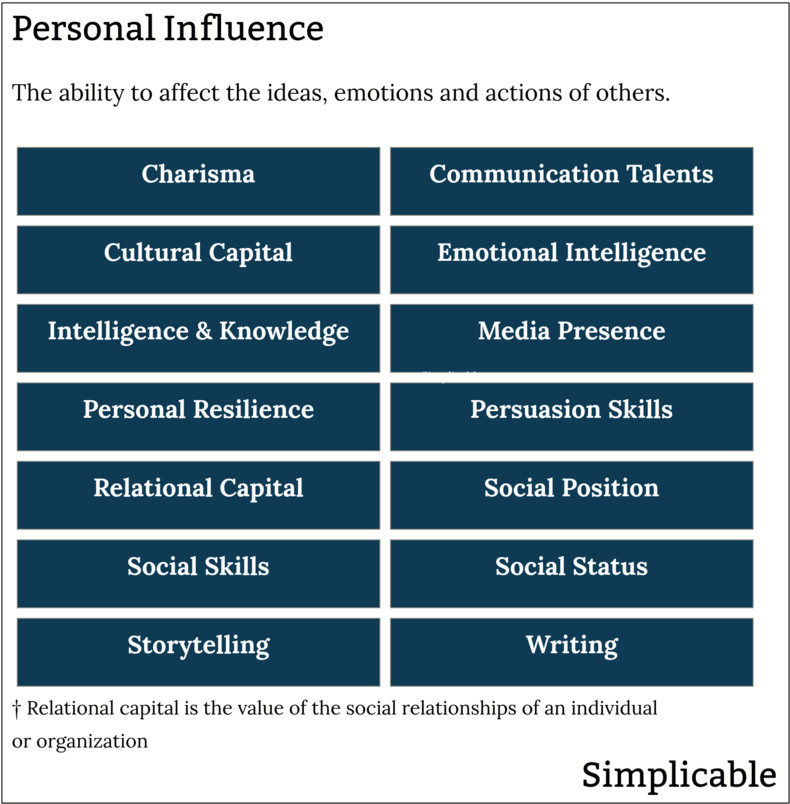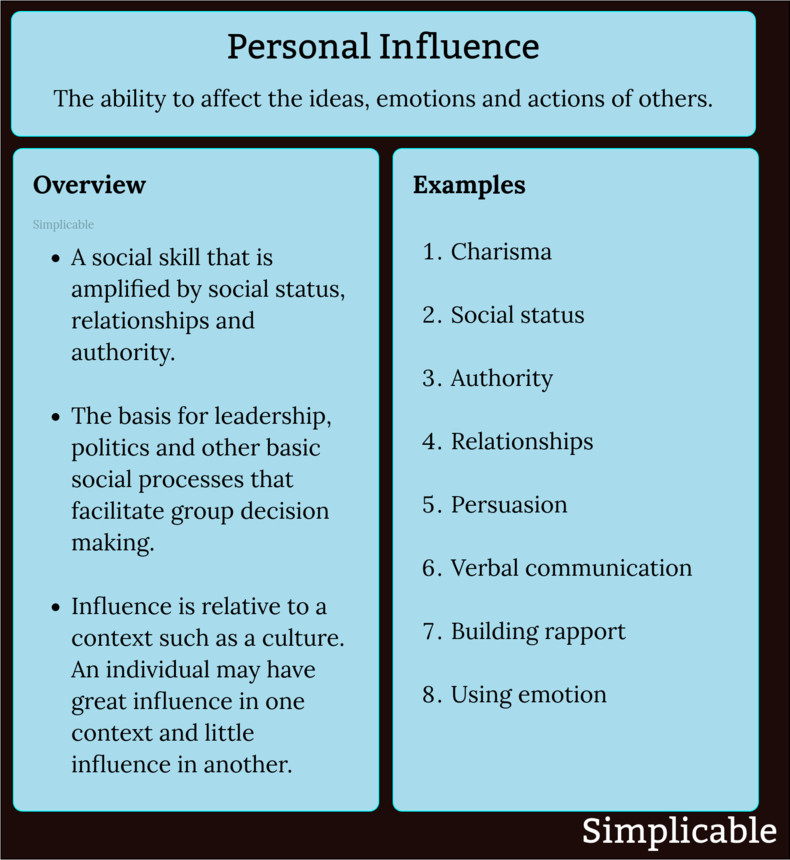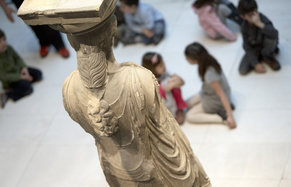
Argument & debate skills | Body language |
Charismatic authority | Communication skills |
Credibility | Cultural capital |
Expert authority | Eye contact |
Formal authority | Grit & resilience |
Handling criticism | Media presence |
Networking | Personal presence |
Persuasion skills | Political acumen |
Presentation skills | Public speaking |
Reading emotion | Reading intentions |
Relational capital | Relationship building |
Resolving conflict | Social skills |
Social status | Storytelling |
Using emotion | Verbal communication |
Visual communication | Writing |
Persuasion
Persuasion is the art of convincing others of your position. If you are talented in this area, you may exercise much influence beyond your social position and status.Cultural Capital
Cultural capital is the ability to influence in the context of a culture. This includes the credibility you are able to build in a particular cultural context. For example, a sports person who tends to resonate with other sports people such that they can more easily influence people who are immersed in this culture.Relational Capital
Relational capital is the value of the relationships that you build. Generally speaking, if you know many people your capacity to influence societies, cultures, communities and organizations may increase.Types
The following are the basic types of personal influence.
Summary
Personal influence allows an individual to lead and affect the direction of groups.






















